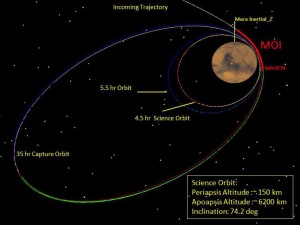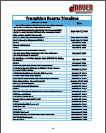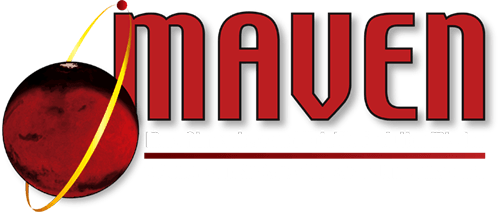
David F. Mitchell, MAVEN Project Manager at NASA’s Goddard Space Flight Center
Everything is going well on the mission as MAVEN orbits Mars! All systems are performing nominally. Following Mars Orbit Insertion on Sept. 21 the spacecraft successfully completed two engine burns which brings MAVEN closer to its planned science orbit. We have lowered MAVEN from the 35 hour capture orbit into its current 5.5 hour orbit period. In the weeks to come we’ll perform additional engine burns to get MAVEN into a 4.5 hour orbit period and the required atmospheric density corridor.
We are also preparing for five separate instrument deployments in the month of October. If all of these execute per plan, we will be targeting a “bonus science” opportunity with the approaching Comet Siding Spring, the comet that will miss Mars by about 135,000 kilometers on Oct. 19. MAVEN will have a front row seat for this “once in many lifetimes” opportunity.
The scientists are already getting an early look at what MAVEN at Mars will mean for the science. As released last week, the exciting results coming from the Imaging Ultraviolet Spectrometer (IUVS) are just a tip of the iceberg, with many other instrument activations and appendage deployments to come over the next few weeks. 
If all goes per plan, prime science should begin on Nov. 8.
[addthis]

